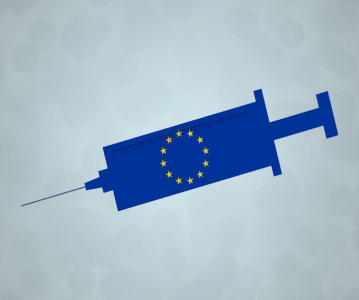HPAPIs and biologic manufacturing present strong growth opportunities for CMOs

Providing value added development services will allow participants to edge out competition, finds Frost & Sullivan's Transformational Health team.
The global contract manufacturing organization (CMO) market is transforming to leverage changes in the pharmaceutical industry. Pharmaceutical companies continue to gain financially and overcome marketplace challenges, source innovative ideas, processes, skills and technologies by outsourcing to CMOs. However, the "vendor approach" model is not generating optimal results for the CMO industry. Expanding services into early stage drug development, complex technology transfer contracts, and flexible capacity supply agreements will enable CMOs to create a "transformational partnership approach" model with pharmaceutical companies.
Global Pharmaceutical Contract Manufacturing Organization (CMO) Market is part of Frost & Sullivan's Life Sciences Growth Partnership Service program, which also includes insights on contract research, biosimilars, orphan drugs, generics, immuno-oncology therapeutics, regenerative medicines, pharmaceutical regulatory landscape and market access.
"In addition to cost benefits and the freedom to focus on core competencies, outsourcing will allow pharma companies to optimize manufacturing capacity utilization rates as blockbuster drugs come off patent," said Transformational Health Program Manager Unmesh Lal. "Several CMOs are already repositioning themselves from low- to high-margin formulation manufacturers in order to attract crucial upstream and downstream biopharma processing operations."
CMOs need to enhance their technical capabilities and amend business models to access the huge market. Along with early-stage of drugs, CMOs must explore opportunities in virtual biotech, out-licensing, and risk sharing business models with clients. Expanding services into biologics and biosimilars manufacturing as well as high-potency active pharmaceutical ingredient (HPAPIs) will present enormous growth opportunities. The challenges lie in the reservations of biopharma companies regarding breach of patent and IP information, concerns regarding the loss of manufacturing control, the stickiness of the CMO business, and the existing, expanding in-house manufacturing capacity of big pharma. Further, personalized therapy products outsourcing is not as attractive for large-scale CMOs.
"To strengthen their position and integrate into the value-chain of pharmaceutical companies, CMOs are turning into one-stop-shop contract development and manufacturing organizations (CDMOs) to provide value-added services," noted Lal. "Increasingly focusing on pre-clinical development services, CDMOs can then transition from clinical services to offering commercial manufacturing."
The global CMO market will also see more consolidation as participants look to inorganic growth strategies to offer integrated solutions to customers. For instance, Patheon, Catalent and AMRI have acquired IRIX Pharmaceuticals, Pharmatek and Euticals respectively. They have been aggressive in expanding their product/services/capabilities through strategic alliances. Similarly, Aenova maintained its market position after the acquisition of Haupt Pharma AG and by selling its Temmler business in 2015. Both Fareva and Famar have successfully adopted an integration strategy of acquiring manufacturing facilities in Europe from large pharmaceutical companies.
Therefore, the emerging CDMO business model, transformation in the pharmaceutical ecosystem, disruptive drug development and manufacturing technologies, and major growth opportunities in high potency and biopharmaceuticals manufacturing are driving differentiation strategies for the long-term profitability of CMOs.
Related News
-
News Patients vs Pharma – who will the Inflation Reduction Act affect the most?
The Inflation Reduction Act brought in by the Biden administration in 2022 aims to give better and more equitable access to healthcare in the USA. However, pharma companies are now concerned about the other potential costs of such legislation. -
News CPHI Podcast Series: What does the changing US Pharma market mean for industry and patients alike?
In this week's episode of the CPHI Podcast Series Lucy Chard, Digital Editor for CPHI Online is joined by James Manser to discuss the political and market changes in the US pharma field. -
News CPHI Barcelona Annual Report illuminates industry trends for 2024
The CPHI Annual Survey comes into it’s 7th year to report on the predicted trends for 2024. Over 250 pharma executives were asked 35 questions, with their answers informing the industry landscape for the next year, spanning all major pharma marke... -
News Which 10 drugs are open to price negotiation with Medicare in the USA?
The Centres for Medicare & Medicaid Services, under the Biden administration in the USA, has released a list of the 10 drugs that will be open to price negotiations as part of the new legislation under the Inflation Reduction Act (IRA). -
News EU Medical Devices Regulation causes unintended disappearances of medical devices for children, doctors state
Doctor groups and associations have appealed to the EU to correct the EU Medical Devices Regulation law that may cause unintended shortages of essential drug and medical devices for children and rare disease patients. -
News 10 Major Drug Approvals So Far in 2023
Last year, 37 novel drugs were approved by the FDA, this was a high number for such a category, and covered many fields including oncology, demonstrating how promising further research is, and how it is only continuing to build. To date, there are alre... -
News Detecting Alzheimer's disease with a simple lateral flow test
A novel rapid diagnostic test for early-stage Alzheimer's disease has been developed using a biomarker binder from Aptamer Group along with technology from Neuro-Bio, the neurodegenerative disease experts. -
News CPHI Podcast Series: outsourcing and manufacturing trends
Listen to the CPHI Podcast Series this June to hear Gil Roth of the PBOA speak with Digital Editor Lucy Chard about the biggest trends and topics to watch in pharma outsourcing and manufacturing at the minute.
Position your company at the heart of the global Pharma industry with a CPHI Online membership
-
Your products and solutions visible to thousands of visitors within the largest Pharma marketplace
-
Generate high-quality, engaged leads for your business, all year round
-
Promote your business as the industry’s thought-leader by hosting your reports, brochures and videos within your profile
-
Your company’s profile boosted at all participating CPHI events
-
An easy-to-use platform with a detailed dashboard showing your leads and performance







